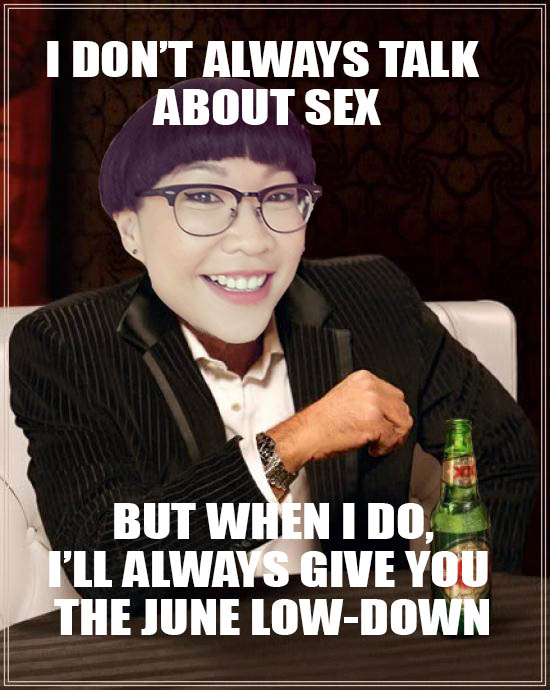I got only 2As for my SPM… here’s why it doesn’t matter
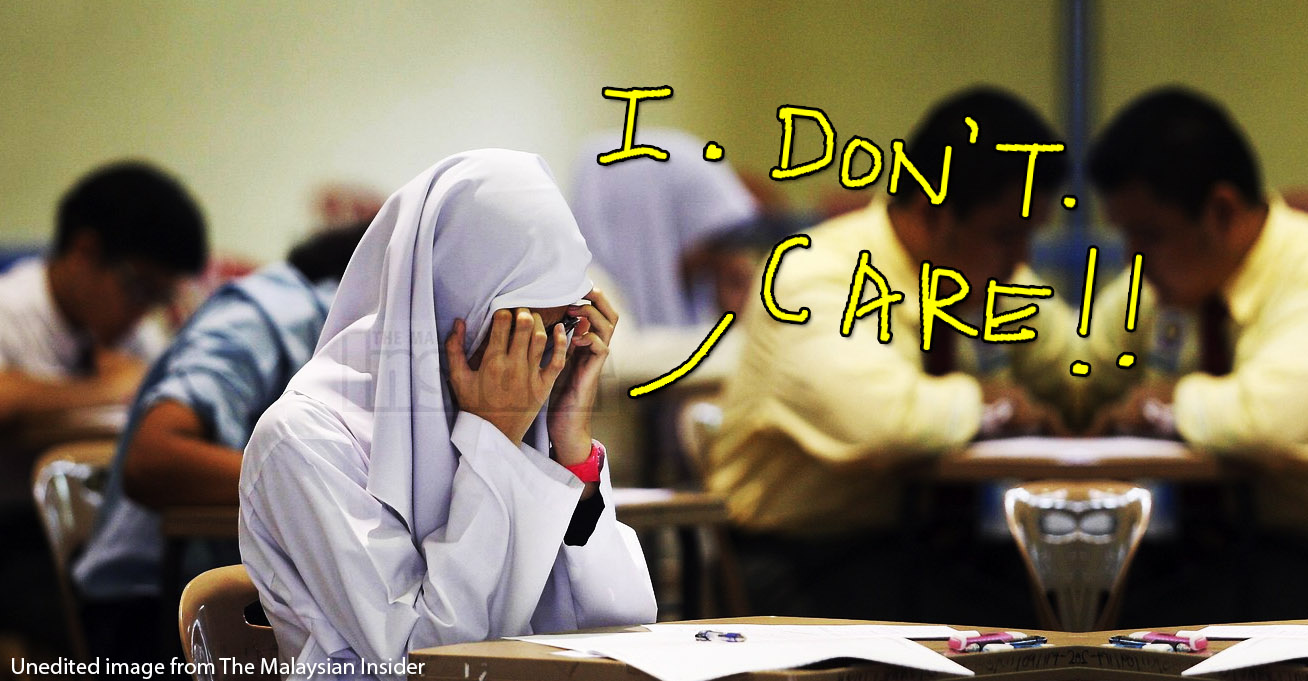
- 12.8KShares
- Facebook12.6K
- Twitter14
- LinkedIn21
- Email41
- WhatsApp118
*Artikel ni ada dalam Bahasa Melayu, tekan untuk baca!
Everytime SPM results are released (usually in March), the front page of every newspaper will be plastered with pictures of the top student with best results.
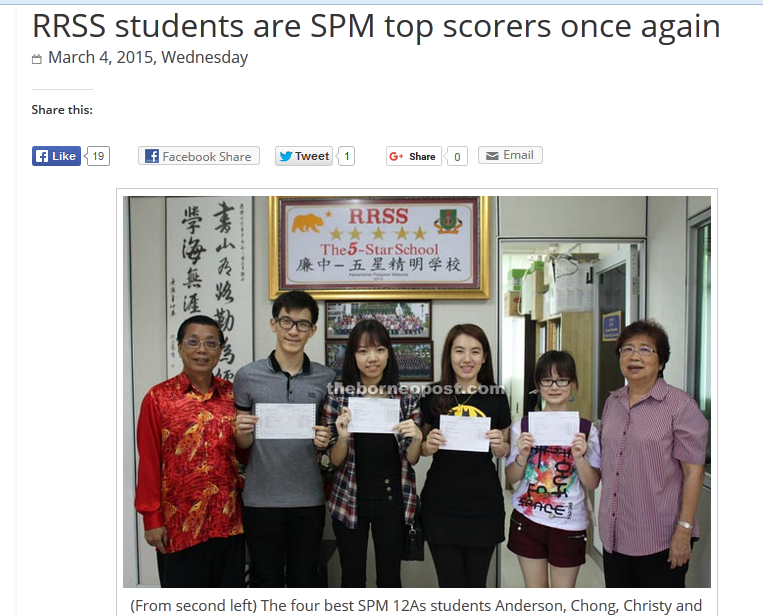
It’s every 17-year-old’s D-Day, which for me was five years ago. I had sweaty palms. Was I nervous? Naturally. Pressured? Tremendously. The moment of truth, and success lies on a piece of paper; the Sijil Pelajaran Malaysia (SPM) results.
It didn’t take me long to scan through the ten subjects… of Asian disappointment.
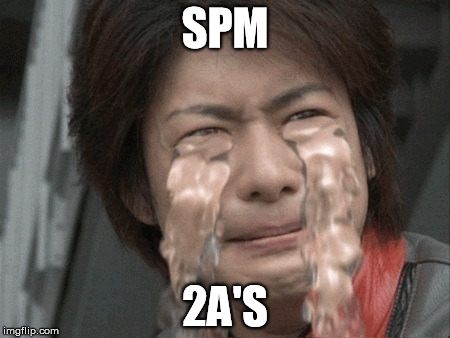
SPM has always been seen as a passport to a good university, scholarships, a good career, and basically it’s a stepping stone to great things lah! So to get good results is crucial. And I have my over-achiever classmates as a constant reminder.
But what if… I didn’t get “good results”? And then what?
Well.. Sit down, and let’s explore the reasons why a few years later, those 2As became nothing more than a small and almost useless teasing point.
1. It doesn’t guarantee me a bright future (statistically speaking)
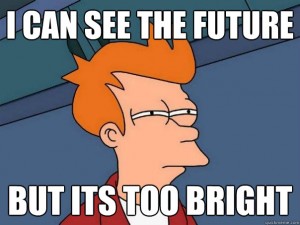
When I first got my 2A result, I was horrified at my future prospects. Everyone else was going to study to be a doctor, lawyer, biotech engineer… and me? I wanted to study Mass Comm..
If you get Straight A’s, that’s great, yeayy! If you don’t, and that’s okay. It’s not the end of the world (trust me). Hug it out, and we move along.
Getting Straight A’s does increase your chances in getting a scholarship, especially sought-after ones, such as JPA (Public Service Department), Maybank, Petronas, and many other scholarships under the sun. Gaining a placement at public universities are higher, but due to the strict quota implementation, competition is strong. Or you can just pay for college. While Straight A’s is a bonus, it’s not everything.
Having good grades looks nice on paper, gives you a lil push, but nothing beats real work experience. If you don’t believe us maybe you can try listening to this recruiting consultant who spoke to CILISOS anonymously.
“We assess your interest level, motivation and soft skills, and being a right fit to the organisation. You need to have the right character that matches the client.” – a recruiting consultant in an interview with CILISOS
If you notice, he didn’t mention anything about school grades, but rather the importance of soft skills and attitude. While technical proficiency can be assessed through tests, learning by experience (experiential learning) is something that our public education system does not promote as it is focused on memorising information based on repetition (rote learning).
There are a lot of people, without straight A’s, that do really well. For example, Johan Farid Khairuddin got 1A for his SPM but that didn’t stop him from becoming a commercial pilot and radio personality.

“When I got that 1A, I told myself that this can only be the starting point of my entire life. Let me work harder from here,” – Johan, as quoted in Star R.AGE.
SPM top scorer and Harvard University undergraduate Avinaash Subramaniam discovered that good results didn’t actually help with dealing with the world after secondary school.
“At Harvard, I realised that all the things we studied in secondary school were a waste. … I feel SPM is not a good way to assess how intelligent a student is because some brilliant Malaysians who didn’t do as well in SPM are successful in their college life.” – Avinaash, as quoted in the Universal Education Agency.
And you know what he’s talking about cause he scored 11As out of 11 subjects in SPM. 😀
The need to remind ourselves that good grades are not an indicator of a person’s abilities or potential is exemplary in a case like his.
2. The world is not just about Science or Arts stream
When I entered Form 4, the choice of what stream to study is between Science or Arts. But did you know that there’s more than just Science or Arts stream?
There are Technical Vocational Schools at Secondary Level that offer science and technical subjects. But these vocational electives are also offered in academic schools to increase participation in the science and technology field. The electives include Engineering Drawing, Agricultural Science, and even Hair Dressing.
But… for most of us it’s really down to just one choice. Why?
Well.. saudara dan saudariku, there’s this thing called conditioning, which surfaces in the form of your parents, teacher, or distant annoying relatives telling you what to do, and what not to do. That includes what stream to go into, and a common statement would be:
“Take science lahh so next time can study medicine. If after Form 5 you don’t want to be a doctor, then you can go do Arts in Form 6 and be a lawyer.”
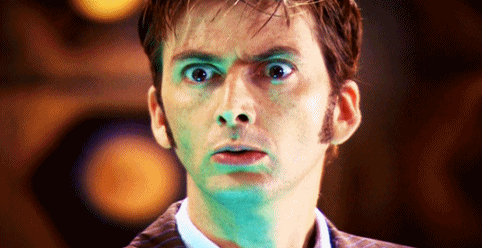
How will a 16 year old feel, and react? If you had a choice to choose what you want to study, what would you have picked? What if you wanted to be a writer, or a private detective, or a professional mattress jumper?!
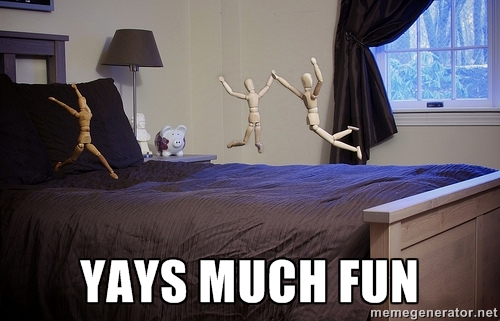
A factor that might contribute to this conditioning could be something to do with the desired number of science and art graduates based on a policy by the Ministry of Education to produce sufficient graduates in areas of Science, Technology, Engineering and Mathematics (STEM) by 2020. This policy that gives the sciences priority has been in existence since the 1970s, which may explain the mindsets our parents’ generation.
But either way it probably won’t matter because…
3. Not every subject has real world applications (Pendidikan Moral? Srsly!?)
To be honest, for those five years (even until SPM), I never really bothered memorising ALL the nilai murni’s because.. ain’t nobody got time fo dat!
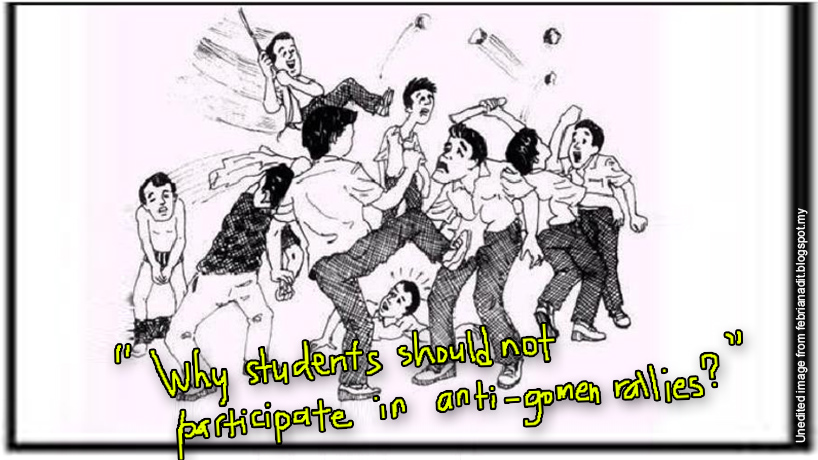
In schools, there is a heavy emphasis on the core subjects: Bahasa Melayu, English, History, Mathematics, Science and Islamic Studies or Moral Education, which are compulsory.
Anyone remembers the other non-exam compulsory subjects in our syllabus such as Pendidikan Jasmani (physical education), and Civics? Of course not! It’s not part of the exams. In fact, the time slots for these subjects are “replaced” by other core subjects, so that more time can be spent on exam preparation and scoring well.
So you see, in the pursuit of Straight A happiness, we are neglecting other areas that are equally important such as critical thinking, artistic development, and emotional intelligence. A study has shown that these areas are equally as important for the development of a child’s cognitive abilities.
A local university-college lecturer wrote on the common phenomenon of heavily-focusing on memorising and regurgitating facts for examinations.
“Training whole generations of youth to regurgitate and memorise their way to a PhD? That’s like populating a food court with nothing but sub-par chicken rice.” – Alwyn Lau, local lecturer, as quoted by The Malaysian Insider.
An example of this would be Pendidikan Moral. Non-Muslim readers might remember having to memorise the 36 moral values AND definitions… but does knowing any of this actually make you a better person? Picture this, if you see a blind man crossing the road, would you think “Oh, aku kena menghormati hak golongan kurang upaya. Aku kena memberi layanan yang sopan kepada golongan kurang berupaya supaya tidak berasa tersisih dan mengiktiraf mereka sebagai insan ciptaan tuhan.” or are you just going to walk up and help?
So If I get a B for my SPM Moral, does that mean I am… immoral?

You know what should be taught in school? Real life skills, like taxes and financial management. Asian Institute of Finance (AIF) ran a survey and revealed that the Malaysian Gen Y are accumulating debt at an early age due to a reliance on credit cards for online purchasing. The importance of handling money responsibly from young is a good start so that we can make informed decisions and understand the economy is a broader perspective.

4. It cultivates a terrible culture with little substance
It can be argued that our culture has deep Confucian roots that prioritises group harmony, hierarchical order, and respect. Performing duties faithfully and diligently are important, so as a student our role is to study, work hard, and get good grades.
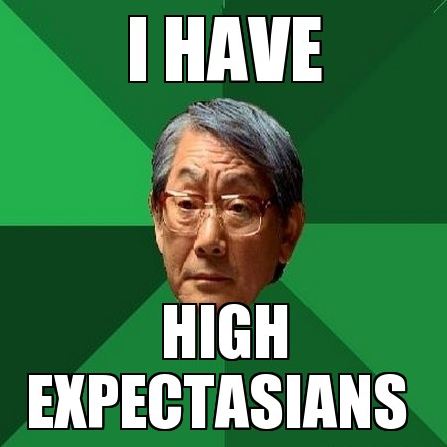
With Britain ruling then-Malaya till 1957, our education system was based on their General Certificate of Secondary Education. With both educational influences, we still hold the kind of educational achievement that is promoted by an exam culture.
That being said, we are not denouncing the importance of exams, but rather how we perceive good grades and success. The educational achievement in our Malaysian academic diet is currently over-emphasising in an unhealthy chase for straight A’s for all the wrong reasons. Heck, even the Deputy director-general of the Ministry of Education said so.
“…many are not aware that emphasis on examination alone is a ‘silent killer’ because it will not be able to produce students who are holistic in nature.” – Deputy director-general of the Ministry of Education Datuk Sufa’at Tumin in a Borneo Post article.
The Malaysian public education system has been criticised for producing robots, and not thinkers. Of course parents who want a more well-rounded education for their kids can send them to international and private schools but ain’t nobody (okay, not all) gots money for that!

Then there are parents who send their children to public schools who enrol them for multiple tuition classes, whether the kids need it or not. The tuition culture primarily stems from peer pressure because many students are already attending tuition classes, as these centres use exam tips as a promotional tool.
Ask any Malaysian public school student, and they will most likely tell you that some teachers teach minimally during school hours but go the extra mile during their tuition hours – even to the point of allegedly leaking exam papers.
We’re not even exaggerating here. 2014’s UPSR exam fiasco where tuition teachers allegedly (again) leaked exam papers, caused the Standard Six students to resit both English and Science papers. And it’s not then. In the past, news of exam paper leaks are not uncommon especially with SPM and STPM. And with parents now kiasu enough to buy leaked UPSR papers, The Malaysian Insider asked a really good question:
“Are we teaching children that it is perfectly fine to cheat at examinations just so that they can get ahead of their peers in life?”
5. It’s not about number of As, but what I do with them
In a radio interview a few years back, Datuk Seri Dr Chua Soi Lek said that it is now easy for SPM takers to get Straight A’s, but “market survey shows they do not live up to expectations.”
We worship straight A’s and aiming to be the best in all-things academic, but what about the quality of education and how in-depth students learn that can’t be measured? What do students take home after each lesson?

The Malaysian education is not known for its focus on holistic education, whereby it creates well-rounded individuals, unlike in Finland; the Scandivanian nation that never fails to be referenced at international education conferences. The Finnish model makes schools the centre of the community. Teachers are highly trained and respected, and they only spend four hours a day in the classroom, taking two hours a week for professional development.

Fun fact for y’all, the Finns only started reforming their education system some 40 years ago, and are now consistently topping international educational rankings. In comparison, Malaysia has gone through over 60 years of educational reform and is now consistently dropping in international educational rankings.
But actually, it’s still a WEEEEEeeeeeEEee bit embarassing la.
Ok, so despite me putting up a brave front… yes I do get a teeny bit malu to admit. I didn’t even tell most of my friends about it cause everyone’s all high-achiever… and then there’s me.
At the end of the day we argue that your SPM results would at the most be a stepping stone to next phase of life which is college, and after that it will be your Bachelor’s Degree and so on.
If SPM was an indicator to success, then this article would not be written today. When I came for my interview with Cilisos, my boss only asked me for my SPM results out of curiosity, and obviously if my answer mattered, I will be out on the streets looking for an internship.

But that’s our argument. How many A’s you got for SPM, and what are you doing now? Let us know in the comments. 🙂
- 12.8KShares
- Facebook12.6K
- Twitter14
- LinkedIn21
- Email41
- WhatsApp118

